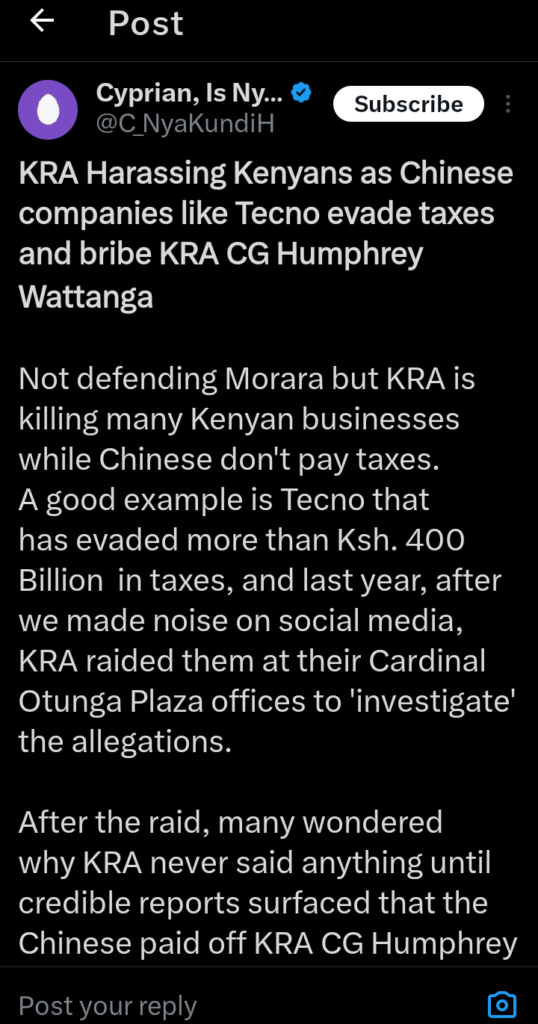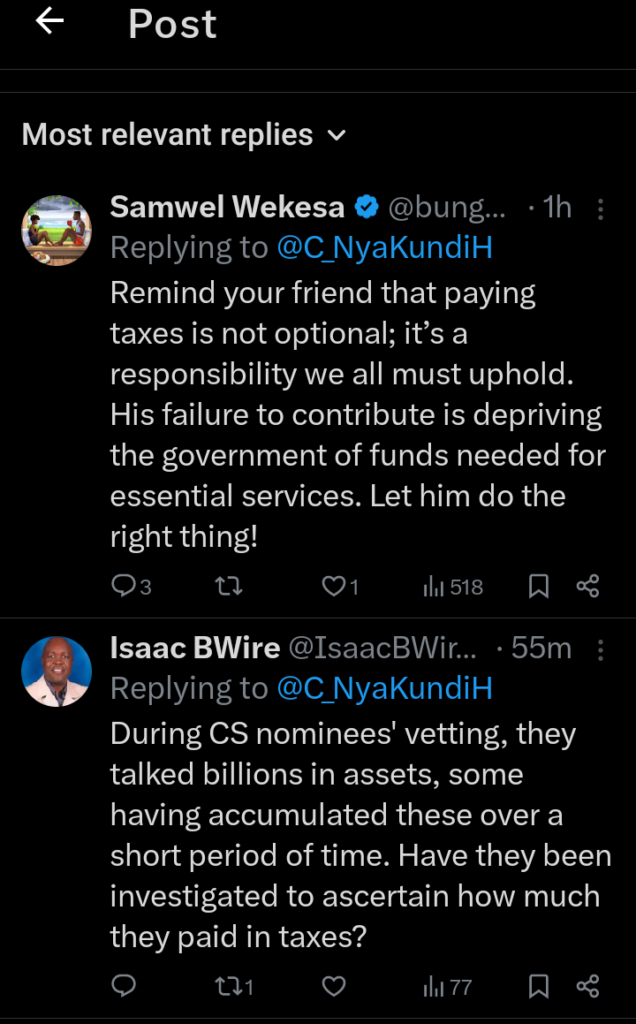The Kenya Revenue Authority (KRA) has come under heavy criticism for allegedly enabling tax evasion by large corporations like Tecno while relentlessly targeting struggling Kenyan businesses.
Despite not defending individuals like Morara, the glaring discrepancies in KRA’s enforcement efforts raise serious questions about its integrity and priorities.
A prime example of this disparity is the Chinese tech company Tecno, which has reportedly evaded over Ksh. 400 billion in taxes.
Last year, after public outcry on social media, KRA conducted a raid at Tecno’s offices in Cardinal Otunga Plaza to investigate the allegations.
However, the outcome of the raid remains a mystery. Credible reports suggest that Tecno paid Ksh. 100 million in bribes to KRA Commissioner General Humphrey Wattanga to avoid scrutiny and continue operations unchallenged.
This alleged payoff has left Kenyans questioning the transparency and accountability of the tax authority.
Several unanswered questions continue to linger.
First, why has KRA refused to disclose how much Tecno pays in taxes? Such information should be publicly available, especially when companies like Safaricom, EABL, and Twiga foods openly report their tax contributions.

Second, why does Tecno reportedly pay its employees in cash? This raises red flags about potential tax evasion and financial irregularities.
Third, how is it possible that companies like Twiga Foods, with far smaller operations, pay more taxes than Tecno, which boasts a marketing budget of over Ksh. 3 billion annually? Lastly, why do KRA officials allegedly visit Tecno offices weekly to collect “private taxes”?
These practices point to a systemic problem within KRA and its approach to tax enforcement.
Tecno is not the only Chinese company accused of exploiting Kenya’s tax system.
Many Chinese firms reportedly register a single company and use the license to operate multiple businesses, effectively sidestepping tax obligations.
Opera, for instance, is linked to several proxy companies like Okash that allegedly trade without paying taxes.
These loopholes, coupled with KRA’s apparent complicity, have allowed foreign firms to evade their financial responsibilities while Kenyan businesses struggle to comply.
KRA’s focus on persecuting local businesspeople, as seen in high-profile cases like that of Morara, appears to be a smokescreen to distract from its failure to hold large corporations accountable.

The agency must come clean about Tecno’s tax contributions and address these serious allegations.
This is not an issue that can be ignored or silenced through bribery and propaganda. Kenyans deserve transparency, fairness, and a tax system that does not discriminate between struggling citizens and well-connected foreign firms.
Without such reforms, KRA risks losing public trust and further exacerbating economic inequality.





















Add Comment